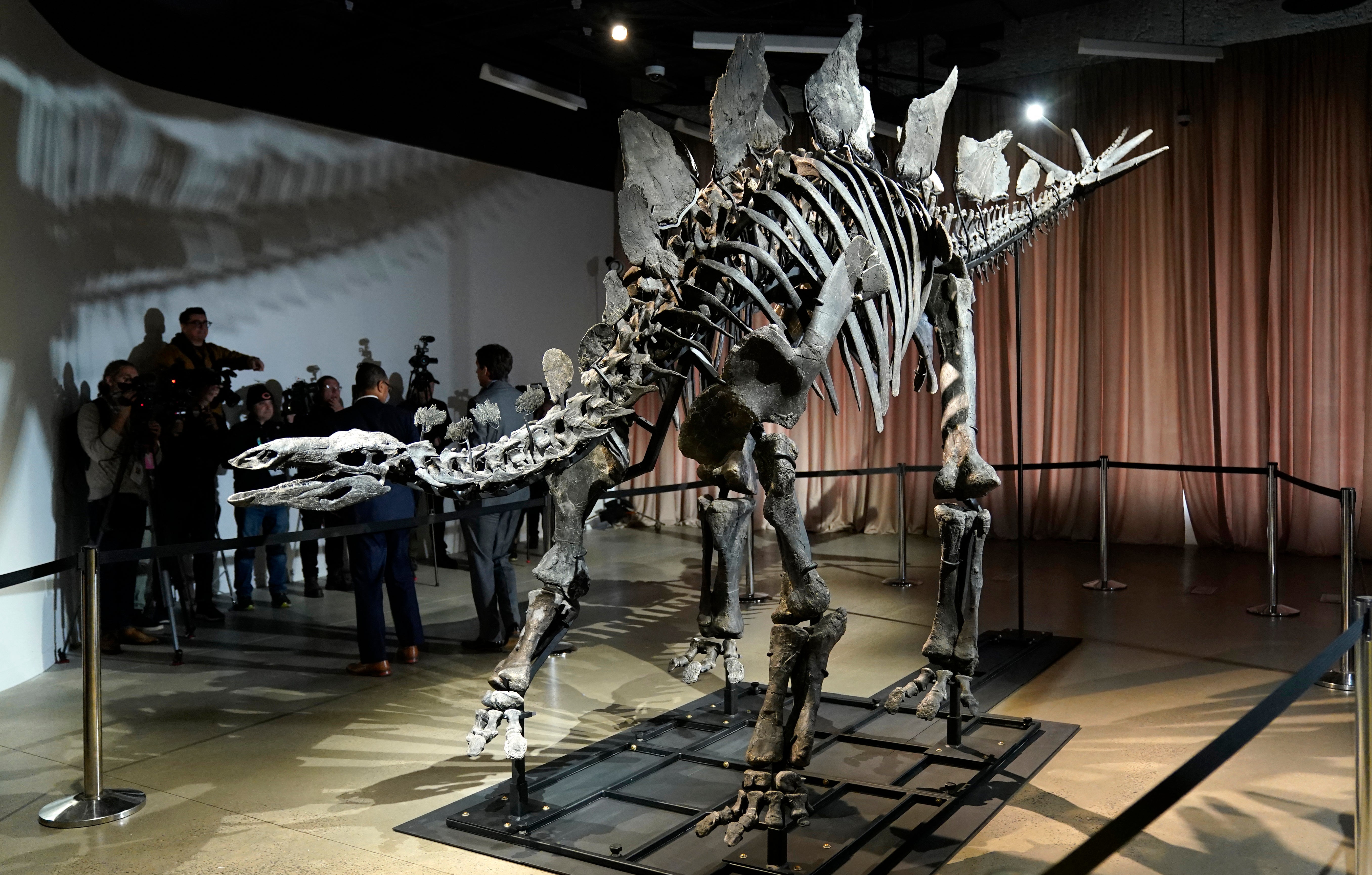The largest Martian meteorite ever found on Earth is being auctioned off later this month and could fetch up to $4 million.
One of only 400 of its kind ever found, the hunk of red-hued space rock was chipped off the Red Planet by a massive asteroid strike before hurtling some 140 million miles to Earth.
Known as “NWA 16788,” it was found in the Sahara Desert by an unnamed meteorite hunter in 2023 before being exhibited at the Italian Space Agency and in a private gallery in Tuscany. It is unclear when it fell to Earth.
If the Mars rock sells, it is expected to break records. A meteorite found in China in 2000 currently holds the title of the most expensive ever offered at auction. However, it didn’t sell when it was offered by Bonhams in 2008 for nearly $3 million. NWA 16788 is listed for $2 million – $4 million.
“NWA 16788 is a discovery of extraordinary significance — the largest Martian meteorite ever found on Earth, and the most valuable of its kind ever offered at auction,” Cassandra Hatton, Sotheby’s Vice Chairman of Science and Natural History, explained in a statement.
.jpeg)
The auction is slated to take place on July 16 at Sotheby’s New York.
Hatton called the space rock a “once-in-a-generation find,” bringing the potential owner a step closer to the fourth planet from the sun. Getting humans to Mars won’t likely happen until the 2030s or later.
About the size of a computer monitor and made primarily of the mineral olivine, the meteorite is 70 percent larger than the next piece of Mars found on Earth, and weighs 54 pounds. Some of the meteorite has been turned into glass in its violent descent through Earth’s atmosphere, before it crashed down in the west African country of Niger.
Martian meteorites offer people insight into the geology and composition of Mars: one of Earth’s closest planetary neighbors, alongside Venus.
.jpeg)
It is for this reason that auctions of items with historic and scientific value have long been controversial. In the early 2000s, Oregon’s Confederated Tribes of Grand Ronde protested the auction of a chunk of one the world’s most famous meteorites, which they believed to hold sacred significance.
Dinosaurs are also often on the auction block — even as paleontologists have voiced concerns about the effects of the sales, including the rising prices of leases for land where they make important finds.

A stegosaurus named “Apex” sold for nearly $45 million last year before being loaned to the American Museum of Natural History.
“With $44 million to scientists,” Field Musuem paleontologist Jingmai O’Connor previously told The New York Times, “we could move forward our understanding of dinosaurs by decades.”


.jpeg?trim=1,0,2,0&width=1200&height=800&crop=1200:800)
